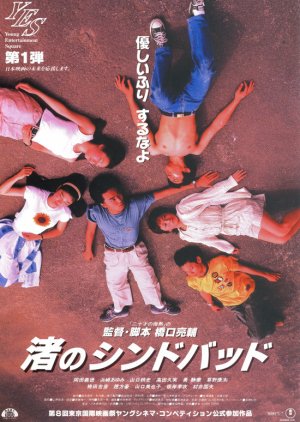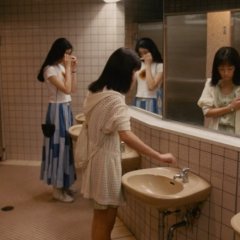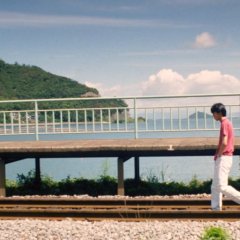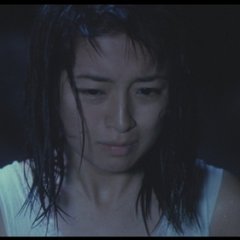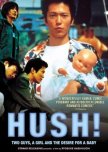A psychological drama about love, longing, homosexual desire and psychological turmoil--i.e., the perils of puberty. Ito is a shy boy in the top class at secondary school. He feels attracted to his classmate and best friend Yoshida, who is not aware of Ito's intimate feelings. They spend alot of time with Kanbara, whose comic actions hide his sensitive nature. Aihara is new at school and remains aloof with her cool attitude. No one knows that at her previous school she was raped and is now in therapy. Meanwhile Yoshida, who's currently involved with the insecure Shimizu, is interested in Aihara, the mysterious new girl... It is obvious, the each teen is hiding behind a wall which they must break through in during this tough process of maturation. Edit Translation
- English
- magyar / magyar nyelv
- dansk
- Norsk
- Native Title: 渚のシンドバッド
- Also Known As: Sinbad of the Seashore , Nagisa no Shindobaddo
- Screenwriter & Director: Hashiguchi Ryosuke
- Genres: Romance, Life, Youth, Drama
Cast & Credits
- Okada Yoshinori Main Role
- Hamasaki Ayumi Main Role
- Kusano KoutaYoshida HiroyukiMain Role
- Negishi ToshieMs. NezuSupport Role
- Yamaguchi MiyakoMs. YoshidaSupport Role
- Hakamada YoshihikoFujitaSupport Role
Reviews

a masculine sensitivity.
It was Hashiguchi Ryosuke's birthday recently and it reminded me I hadn't seen one of his films before. Given he's a noteworthy filmmaker in modern Japanese queer cinema, I thought I would fix that.Hisaguchi’s preference for long arduous shots often leaves his characters bare naked in scenes—their every motion captured raw for potentially masochistic viewers. It’s awkward, but so is being a teenager, and it’s in this way that the movie really goes for the jugular. These characters are incapable of truly being themselves—they either don’t know how to or are afraid to or both—and after a painful two-thirds of skirting around feelings, everything comes to head in the film’s stunning final act. It’s potentially some of the most captivating 30 minutes ever committed to screen, considering how hard it was to look away. Each shot finds ways to imprint itself more & more into the brain, until it's all taken away.
As an intimate exploration of sexuality—not in the physical, but in the emotional—Hisaguchi has crafted an almost surreal piece of escapism via self-actualization that still manages to resonate some 25 years later. It’s tender, brutal and honest, and kindly asks its audience to be the same. It's not for everybody, but it certainly was for me.

Being queer is a choice?
This film is about teenagers finding themselves and maturing. We follow them throughout their journey, and I believe they all grew and became different people by the end of the film.I loved the cinematography, especially in the countryside setting. The OST is beautiful and could have been used more often throughout the movie. The script is also great.
I think the contents of the movie were well thought through, although the message in some scenes can be questioned. An example is the drowning scene at the end, where Ito told Yoshida that he could "kiss a boy if he tried", implying that being queer is a choice (which it most certainly is not).

